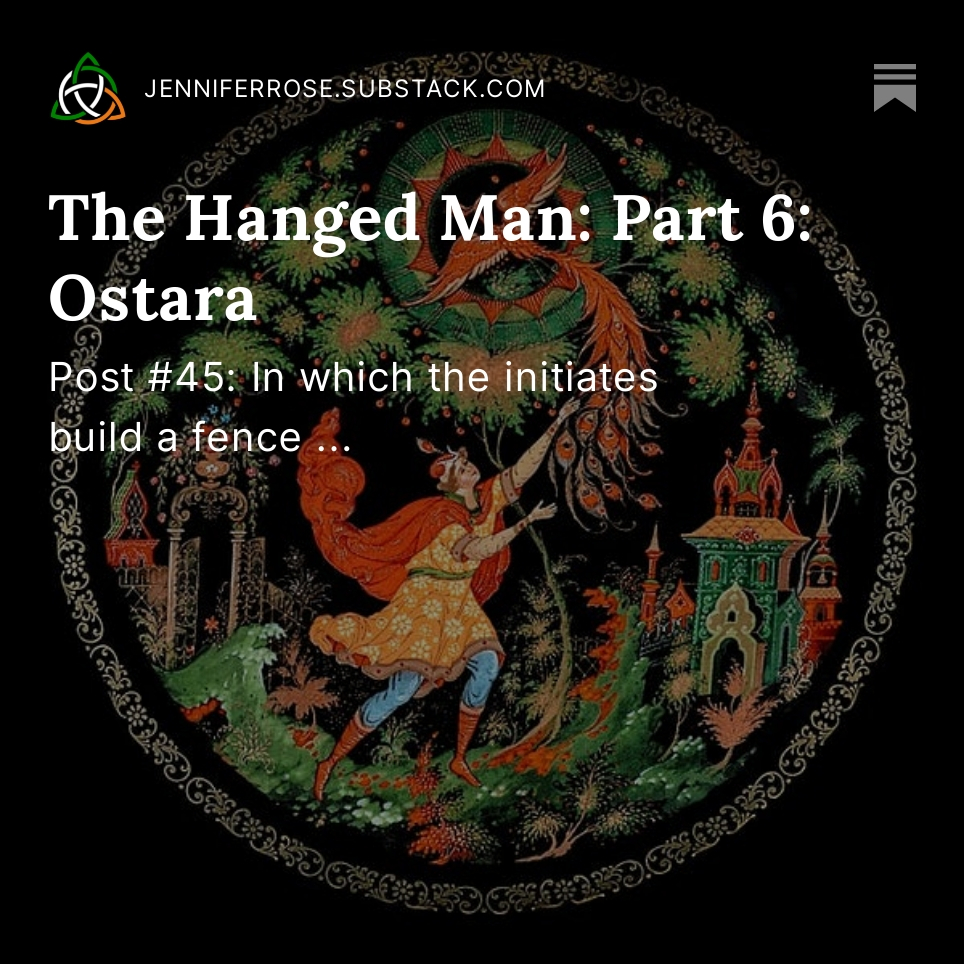by Jenny Rose | Nov 26, 2022 | A Flourishing Woman, Spirit
On Thanksgiving morning I started a four-day break from my job. I spent the first hour of my day in my favorite chair snuggling with the cats, drinking a cup of green tea, journaling, and doing my morning online check. Perky articles and posts about gratitude and thankfulness were inescapable, as was Black Friday advertising. All of it made me feel sour. The swing in our media and advertising between catastrophizing and toxic positivity, whatever has the potential to make the most money in the moment, is nauseating.

Photo by Roderico Y. Díaz on Unsplash
By nature, I make the best of things, though I’m not an optimist. I’m a wait-and-seeist. By long habit, I spin my experience of life in a positive way. I practice gratitude regularly.
But, honestly, sometimes life is damn difficult. And this fall has been extremely difficult. And let’s face it, many, many people on this planet are struggling in ways I can’t even imagine. That’s true every single day.
I could make a long list of things for which I am grateful. I do it all the time when I’m feeling down and out. That’s attractive and adult and fashionable, particularly on Thanksgiving.
But I could also make a list of things for which I am not grateful.
I know, I know, nobody likes a whiner or a complainer. It’s unattractive and unseemly. It’s entitled.
But is it really entitled or is that just a criticism we throw out because we don’t want to think about all the tough stuff? If we do think about it, we want to do it privately where no one will catch us being less than grateful and positive, as though it’s shameful to feel frustrated, exhausted, impatient, fearful, or upset. But aren’t the times when we feel those feelings also the times we most need support?
I’m not proposing to pitch a tent and live in the negative outback of life, but it is part of my experience, part of my landscape, and it certainly influences many of the more pleasant aspects of my life and my gratitude.
Isn’t gratitude more powerful when we’ve acknowledged our ingratitude? Is there some virtue in refusing to tell the truth about the things in our lives that don’t work? Some would say the perceived negatives, the hidden pain, sorrow, and difficulty, must not be acknowledged or displayed. What would the neighbors think? Dirty laundry!
I discovered, as I made my list, how difficult it was to refrain from putting a positive spin on things. I wanted to explain, to justify, to make exceptions, to soften my ingratitudes. I wanted to signal my shame.
The strength of my compulsion to be grateful, submissive, and positive was enough to trigger my wide streak of rebelliousness. So here, in no particular order; without apology, justification, too much detail, or any other anxious softening and sugar-coating, is my Thanksgiving 2022 List of Ingratitudes:
Planned obsolescence (greed meets waste)
Spammers and black hat hackers
Unclear, ineffective, hard-to-navigate websites (I’m talking to you, federal and state governments!)
Unavailable or unusable tech support (see above)
Irresponsibility
Broken public “education” system (education is not about what to think; it’s about how to think)
Unaffordable insurance
Rape culture and misogyny
Alcohol and nicotine
Postmodernism
Wokeism (Great roots are now cancerous and have become toxic “overrighteous liberalism” (quote from British journalist Steven Poole). Get a grip, people! Let’s work together for a level playing field for all rather than exercise our moral indignation!)
Denialism
People who want to win and be right (shut up and sit down!)
Institutionalized racism (can’t we do better than this?)
Homophobia (get over it, and mind your own business while you’re doing it!)
This list is not complete, but these are are some of the things that don’t work in our culture, in our world. We can do better. We could make life better for everyone.
Sour humor aside, I am truly grateful for all you readers, your comments, your shares, your presence. Thank you. Happy holidays!
To read my fiction, serially published free every week, go here:
by Jenny Rose | Nov 19, 2022 | A Flourishing Woman, The Journey
I was taught, as a child, it was my job to alleviate distress. One must always respond immediately and help the sufferer. It went far beyond duty and obligation. If I did not fix the distress of others, my childish world would fall apart. Everyone would leave.

Photo by Cristian Newman on Unsplash
For a child, such consequences are death.
I was also taught “help” meant doing anything and everything I was asked to do, immediately, unquestioningly, and unendingly. My own distress was of no consequence at best and a direct threat, an unwelcome competition, at worst.
That core teaching stayed with me as I grew up, and has been a keynote of my behavior and experience most of my life. I wanted to help people. When people around me suffered, I felt an overwhelming, painful panic, as well as complete responsibility. I had to do everything I could, give the situation my all in order to “help.”
I also grew up with an inability to respond to my own distress. Hunger, thirst, fatigue, emotional and physical pain, were all ignored. My disconnection from my own needs and experience led me into chronic pain, eating disorder, depression, and anxiety. I was unaware of my traumatic wounds. I had no interest in helping myself. Helping myself was selfish, bad, and unloving.
Then I studied emotional intelligence and all the work and therapy I’d done over the years with guides and teachers as well as on my own (see my Resources page) wove together into an intention to reclaim my health and my self.
This blog has been a key part of that work.
I still don’t like to watch people suffer, but I’m more careful now about “helping.” I’ve learned suffering is not necessarily the enemy. We get ill, have painful emotional and physical injuries, have uncomfortable feelings. We age and our bodies and sometimes our minds wear out. To be human is to experience these things; they’re inescapable. We can’t control what happens to us, but we can control how we deal with such events. When someone is suffering, I’ve learned to be less reactive, to remember it’s not my fault or my responsibility to fix it. I’ve learned to notice whether the sufferer is helping themselves before I jump in.

Photo by Joshua Earle on Unsplash
I have learned a bitter lesson: No one can help someone who will not help themselves.
I realize now we can’t always go back to where we were before we were wounded; we can’t always heal the wound itself. Sometimes our wounds and suffering are taking us into something new and what’s called for is not healing, but tolerance and patience.
What does “help” mean? This is an important question. Does help mean we respond promptly to all demands, whether or not they are safe, sustainable, or even possible? Does help mean we make thoughtful, intentional choices for safety and practicality even if those choices go against what we are being asked to do in terms of “help?” Do we decide what the best “help” is, or does the sufferer get to choose what kind of “help” they want?
I’m still uncomfortable talking about my own pain. Honestly, I’m still uncomfortable even noticing it, but I practice every day at staying present with how things are with me. It feels selfish and wrong, but I know that feeling doesn’t mean it is selfish and wrong, just that it’s very different from my early training. Sometimes the choice that feels worst is the best choice. Sometimes suffering is the only possible road forward into peace, growth and resilience.
None of us has the power to help anyone avoid suffering. I confess I’ve argued with that reality all my life, but it hasn’t done a bit of good. In fact, it’s done harm, most of all to myself.
I have occasionally, in the depths of anguish, asked for help. When I do that, what am I asking for?
Nothing tangible. Not money or a thing. Not love. Not sex. Not a gallon of ice cream. I’m not asking for someone to come along and fix it all, or take responsibility.
I’m asking to be heard. I’m asking for someone to say, “I’m here. You’re not alone. I believe in you. I know your goodness, your strength, your courage.” I’m asking for a safe place to discharge my feelings. This might involve snot, wet Kleenexes, rage, and a raised voice.
A safe place is not a place where someone else takes responsibility and fixes, or asks me to stop feeling my feelings, or is clearly uncomfortable with my suffering. A safe place is provided by someone with healthy boundaries who is willing to witness my distress without feeling compelled to fix it.
Witness. A witness. That’s ultimately what I want. Just someone to be there with me for a little while. I can face my own demons and challenges, but I can’t do it all alone.

Photo by Gemma Chua Tran on Unsplash
None of us can. We are social animals. But we can witness for one another. We can sit quietly, holding a safe space without judgment or a fix or advice, and just witness. Pass the Kleenex.
It’s the hardest thing in the world for me to do. Simply witnessing seems so passive, so weak, so useless. Someone right in front of me is deeply distressed and I simply sit like a bump on a log witnessing? Are you kidding me?
Surely, I can do better than that. I can do more than that. It’s up to me to make their suffering stop!
And yet. And yet. Isn’t finding a witness incredibly hard? How many people in our lives can take on such a role? What an inestimable gift, to be willing to walk beside someone who is suffering, to be willing to stay, to not look away. What if our boundaries were so healthy we could do that? What if we weren’t afraid of suffering? What if we were wise enough, strong enough, to make room for it and sit down beside it?
Someone I love is in great anguish of spirit. They beg me for help, but a very specific kind of help which is ethically and practically impossible for me or anyone else to give. Which makes me an enemy. Which makes my loved one even more alone than they already feel, more victimized, more powerless, more confused.
There is nothing about this that doesn’t suck. I dread the phone calls beyond words because I don’t want to witness this suffering. It feels unbearable. But my loved one must bear it, and if they have to, I can. I choose to witness. It feels like nothing. It’s not what’s wanted. But at this point it’s all I can do. So I will keep calling and answering calls. I will get up in the morning and talk to case managers, nurses, CNAs, palliative care consultants, nursing homes, and whoever else will talk to me. I will update friends and family. Then I will get up the next morning and do it again.
I pray there is some power in witnessing, some rightness. I pray that somehow my love and willingness to remain a witness does a little bit of good, provides some small comfort, lights a candle in the darkness of dementia, even for a moment.
And I search inside my own suffering for wisdom, for healing, for grace, and for faith.
To read my fiction, serially published free every week, go here:
by Jenny Rose | Nov 12, 2022 | Choice, Power
I’ve dedicated the last decade of my life to reclaiming my personal power, each step on the path made visible on this blog in the hopes that others might also find their way into a healthier, happier, more effective life.

Photo by Jon Flobrant on Unsplash
It’s been an extraordinary journey, one I hope will never end as long as I’m breathing.
At the heart of personal power is our ability to choose.
I’ve always been aware of how uncomfortable I am choosing for anyone other than myself. For years I wasn’t able to choose effectively for myself; nothing in me wanted the power to choose for others. Hand-in-hand with this part of my experience is an automatic, knee-jerk stubbornness and opposition to those who try to choose for me or anyone else. It’s been a longstanding family joke: Don’t tell me what to do!
I’ve never been friendly toward this kind of authority.
As a parent I was unwilling to take on the role of a policewoman. I wanted my sons, as teenagers, to use their excellent brains and make their own choices, then deal with their own consequences. As I raised them, it slowly dawned on me the choices I made as a mom, though I always believed they were in the best interests of my sons, might have been wrong for them. I began to realize how much time we all spend in frustration over what those around us should and shouldn’t do, including our kids. I decided to stop discussing what others should choose. I still noticed the commentary in my head, but I got better at not letting it out of my mouth.
One day, I looked at my eldest son, who was going through a bad patch, and heard myself say, “I want the best for you, but I don’t know what that is.” I recognized that was the truth, and felt humbled. It broke my heart to see him struggling and unhappy. I would have done anything to have “helped.” But I didn’t trust my motives. Of course I knew what I thought he should do, but was I looking for him to feel better or for him to make me feel better? I couldn’t be sure. I just wanted things to be better. Wanted it desperately, but I also wanted him to figure out how to help himself.

Photo by juan pablo rodriguez on Unsplash
I’m very aware of the word ‘should.’ I cut it out of my writing. I cut it out of my thoughts and speech. I’d even go so far as to say it’s a toxic word. I don’t apply it to myself and I don’t apply it to others. It never fails to appear when I’m arguing with what is or have otherwise stepped out of my own rightful power and am trying to control a situation that’s not mine to manage. It also shows up when I’m being mean to myself.
Now, suddenly, I find myself in a position of needing to make choices for a loved one who at this moment is not able to choose for themselves.
This is not like choice-making for my children. Kids are pretty resilient. I knew I would made mistakes as a parent, and I did. But I could always choose again. With small children, there’s a long future in which to reconsider, make new rules, learn in real time. I wasn’t uncomfortable with it. As they grew up, I gave them more and more power to choose for themselves and stepped back while they experienced the consequences of their choices.
Now they’re adults, and it’s harder. Now I really have nothing to say about their choices as men in the world. It’s not my business. Some of their choices are, to my mind, tragic and self-destructive, and I’m afraid for possible consequences. I’m afraid for my own pain and grief if some of those consequences occur. But I accept the only power I have is to love them and make sure they know it.
And making choices for an aging loved one is different again. The fear I’ll do it wrong is terrible. I’m working in a lifetime context where I never did do anything right, so I’m fighting that old dynamic every minute while I calmly go about gathering tools, resources and information. I know I’ll do my best and I’m confident in my own abilities and the strength of my love and intention, but choice is dynamic. It takes time to choose, observe outcomes, consider what could be better, and choose again.
I don’t know how much time I have. I don’t know how much time I want.
Working with a frail, injured, confused senior feels brittle. I may not have time to manage choice and outcome. Not only that, but when I choose for myself if I’m unhappy with the consequences I only have myself to blame; I bear all the outcomes, which is as it should be. But if we must choose for someone else, they must experience the consequences of our choice. And that’s a heavy burden for me. I feel enormous pressure to choose well, to not make anything worse, while at the same time I can’t see choices that will make anything much better.

Photo by roya ann miller on Unsplash
As I struggle with all this, mid-term elections have occurred and the final votes are being counted. The news is full of debate, discussion, and violence revolving around limiting choice and forcing “choice.” As always, I cannot get my head around people who think it’s okay to impose their ideology on others. I support freedom of personal choice (as long as it doesn’t harm others) in most circumstances. I wouldn’t impose my beliefs or choices on others. The idea is appalling. But I also don’t accept anyone has the right to restrict my access to vote or what I do with my reproductive ability. I refuse to comply with such imposition, even if it becomes law. You might as well arrest me right now.
A conversation recently took place at the pool facility where I work between a woman of child-bearing age and a male senior. She asked him why he thought it was okay for him to decide she couldn’t get an abortion when the choice was personal and had absolutely nothing to do with him. He said such a choice would hurt his feelings.
This drops my jaw. I don’t know whether to let rage catch my hair on fire or laugh. It hurts his feelings when people make choices incongruent with his belief system and ideology? Or it hurts his feelings when women are empowered? Or it hurts his feelings when he can’t control what others choose? Or he feels entitled to never have his feelings hurt?
Wow. Just wow.
Choice. It’s so easy to say to others, or to think, they should do this, or this, or the other. So easy. But I never wanted to run the world. I only wanted to be in charge of myself. Now a loved one needs me to be there for them, and I will be there every step of the way, giving it my best, just as I always have. But it’s not fun. I don’t want the power. I accept I’m the right one to have the power, but I never wanted it. How can I possibly know what’s best for another human being? How can any of us have the arrogance to think we know what’s best for everyone in every circumstance, let alone anyone in any circumstance? At times I can barely choose wisely for myself, let alone anyone else.
To read my fiction, serially published free every week, go here:
by Jenny Rose | Nov 6, 2022 | Boundaries, Connection & Community, Emotional Intelligence
I’m sitting at my desk this morning, the sun shining on the wet grass scattered with wrinkled leaves outside my window. I’ve just been running errands. My desk, unusually, is piled high with scraps of paper, notebooks, my calendar, receipts, to-do lists, and a new binder and paper I just bought to help me organize. My big grey tabby, Oz, is busily knocking everything off the desk and chewing on a new plastic package of AAA batteries because I won’t let him lie on the keyboard.

Photo by Joanna Kosinska on Unsplash
I was sick most of October. I’m finally on antibiotics; I can breathe, and consequently think, more clearly. A week ago an aged family member living halfway across the country with whom I have a lifelong troubled history became openly unable to manage their life and then fell and broke their hip in quick succession.
Sometimes life requires us to muster every bit of learning, wisdom, strength, courage, insight and experience we have in a catastrophic practical test, like a nightmarish pop quiz. This is one of those times. It helps to look at it that way, because I know I have (somewhere) everything I need to manage this situation with all my considerable compassion and clear-sightedness.
This last week I let go of everything. My living space needs to be cleaned. I desperately want to change my sheets after so many nights crying, coughing, and trying to breathe adequately enough to snatch some sleep. I’m longing to escape my phone and laptop, sit in the sun, read, relax, do some gentle gardening (still like late summer here in Maine). I haven’t even started on this post yet, a thing I usually do during the week.
I made it to work. I made it to the doctor for antibiotics. I stayed hydrated. Aside from reactive crisis intervention and coming to terms with what’s happening long-distance, that’s about all I can say for myself. But now, at last, I’m beginning to stir feebly into some kind of normal experience again.
It’s a relief.
I opened this document and started typing without any plan whatsoever. I don’t have to post today on this blog. It wouldn’t matter if I didn’t. I suppose I’ve grown used to the opportunity to organize my life into words every week.

For nearly a decade I’ve worked intensively on boundaries. Ten years ago I knew nothing about personal boundaries. My life was accordingly dysfunctional. It was hardly my life at all, in fact. It was everyone else’s life. I’ve written extensively about boundaries on the blog, and the concept of the difference between your experience and mine is woven heavily into my fiction. I’ve practiced building and maintaining healthy boundaries in the last years, though I’m still far from perfect in working with them.
But I’m getting better all the time.
When we are prevented from building appropriate psychological boundaries as children, we never create an internal world in which we can rest, center, and ground. We become an image in someone else’s mirror, a paper doll, a nonperson.
Nonpeople have no needs, no credibility, and no permission to express themselves as individuals. It’s worse than no permission, though. Nonpeople are severely punished for any independent feeling, need, or expression. Nonpeople have no private life. They’re not allowed to say no.
This kind of relationship, sadly, is often invisible to onlookers. From the outside, such connections look bonded and mutually adoring. The public view never sees the anguish involved in a relationship without boundaries.
Anguish on both sides. Those who seek to prevent others from having boundaries are deeply damaged, insecure people whose own boundaries were likely brutally violated and torn down. They are terrified of being alone, and a boundary makes them feel utterly outcast and rejected.

Photo by Nicole Mason on Unsplash
But for me, boundaries are sanity. They’re safety. They allow the power to choose and respect to flow both ways. They say, “My self is worthy. Your self is worthy. We can choose to love one another as well as ourselves.”
Reshaping a primary relationship with no boundaries into one with healthy ones is excruciating. It may not be possible. I haven’t decided it is impossible, but I wonder. One of the hardest things about it is how it looks to outsiders, who don’t understand why all the harsh edges and corners are suddenly showing in such a perfect, loving relationship, the kind we all want, the kind we should feel lucky to have.
Another feeling I’m present with just now is the nauseating swing between relief and guilt. All secrets, painful family secrets included, have an uncomfortable way of being revealed. Even if everyone involved conspires to keep the secret, eventually, often in a you-couldn’t-make-this-stuff-up kind of way, someone or something like a terrible series of events exposes it.
I’ve posted about such ideas as loyalty, responsibility, duty, gaslighting and projection. The bars of prisons built by family systems are forged out of concepts and strategies like these. But when a secret escapes the bars melt away and we’re suddenly free. We’re not alone in solitary anymore.
Some stranger says to us, “Oh, yes. I’m familiar with that dynamic. I’ve observed that behavior. I understand,” and we realize we are not crazy. We are not mean and ugly. We are not hateful.
We are not alone.
The relief of validation is indescribable. So is the guilt accompanying the relief. When we guard secrets, literally with our lives, for the sake of protecting the dignity of a loved one and the secrets are revealed through no fault of our own, we also feel exposed. The mere fact that we were the designated secret keeper means we failed.
Our love and the cost of bearing the secret’s burden for so long doesn’t matter. The least we can do, the least we can do, is remove all the boundaries we’ve erected so carefully and painstakingly and once again give up our lives, our freedom, our selves. Our loved one’s anguish should become our anguish, their pain our pain, their limitations our limitations. If necessary, their death should be our death. Because we betrayed, we let them down, we failed.
The secret got out.
I can’t see very far ahead. It’s not useful to gaze at the road behind. I’ve already walked it and everything is different now, the people involved and the situation. Right now I know where I am. I can see the next steps. This is a new path, one I’ve never taken before. It’s a new script, a new experience. I’m working on releasing my assumptions. I don’t know what will happen next. I can predict, but predictions make me tired. What I have is right now, today. I know what I will do today, both in my personal life and to manage my loved one’s situation.
This time I will find a way to inhabit my boundaries and support my loved one without sacrificing one for the other. I will make phone calls, send emails, get myself organized to do whatever I can long distance and prepare to travel in case of need. I will grieve.
I will also write, get outside, do some laundry, maybe take a nap, and work on recovering my health, because mine is the only life I can live.
To read my fiction, serially published free every week, go here:
by Jenny Rose | Oct 29, 2022 | Emotional Intelligence, Feelings, Love
Except I’m not. Balancing, I mean.
A few weeks ago I came across a quote: “Grief is just love with nowhere to go.” Backtracking through multiple sources, I ran it down to a woman named Jamie Anderson who wrote it in her blog, which is now gone. The quote went viral.

Photo by Joshua Earle on Unsplash
It hit me right in the heart.
I’ve written previously about my struggle with intense love that is not received. I don’t mean unrequited romantic love. I mean flesh-and-bone love, blood love, the helpless love and connection we feel for family.
My strategy all my life has been to divert the love I feel but can’t give to the intended recipient (at least not in a way I feel they receive and believe in it or even want it) to others who do need and want it. This practice relieves some of the pressure in my heart, but there are several ways it can go badly wrong. Plenty of people in the world will suck up all the love, attention, and support we give them, but have no thought, or perhaps no ability, of returning it. In this case, my painful, overfull heart becomes withered and empty and I have to detach the vampire I’ve attracted.
I’m not looking for a place to dispose of my love like it’s a worn-out sock. I’m looking for a place where it does some good. Because that’s at the heart of feeling love one can’t give – the futility of it. What’s the point of love if we have no place to give it, if love has nowhere to go?
There are places where I feel my love has been useful. Animals. Children. Hospice work. Emergency rescue work. But, aside from animals and my own children, none of these are intimate relationships sustaining me day-to-day. Animals, sadly, have shorter lifespans than we do. Children, inevitably, grow up and find their own lives, which may or may not include us.
I’ve been thinking about this quote for several weeks, intending to blog about it at some point, but always turning away from it into other subjects. It hurts to think about it. I know intellectually writing about pain helps, but loyalty to those who refuse my love stops me. Or maybe shame? Or maybe guilt? (If a family member won’t accept our love, surely the logical conclusion is we’re a terrible person?) Also, I don’t want to hurt anyone’s feelings, or be unfair, or humiliate another person.
I can always find something to write about. I’ve been posting weekly for six years. But there’s much I do not write about. Too painful. Too intimate. Too risky. Too messy.

Photo by Jason Blackeye on Unsplash
Sometimes life is like a boxing match. I have good stamina, and I’m dogged as hell. I’m organized and efficient. I try to think clearly about my choices. I’m thoughtful. But every now and then life knocks me down. Hard.
Usually I cope with vigorous exercise, writing, getting a good night’s sleep, and processing with a friend. I get back on my feet and keep going.
But every few years the blows keep coming, hard and fast, unexpected hooks and jabs.
This has been one of those times. I’m nursing my third upper respiratory infection in four weeks. Not COVID, but one of the many other plagues circulating this fall. I’ve once again pulled out the essential oil, the powdered vitamin C, the elderberry and echinacea tea, the nasal spray, the cough and cold medicine. I don’t usually take medication of any kind, but on this third round I feel so bruised and battered I’m choosing to. I’m tired out.
In between this virus, which arrived Thursday night, and the last one, which departed Monday, we discovered our dirt-floored cellar was ankle deep in water due to several inches of recent rain which caused some flooding. It’s going to take more than a thousand dollars to fix it.
Then, yesterday (Can it only be yesterday? It feels like weeks.) I was informed about the illness and injury of a family member, one of those people I love most in the world who is unable to receive it and has amputated me from their life. Now, a long way away from me as I sit here in Maine with a Kleenex box, another family member (another of my dearly loved ones) is carrying the whole situation on their shoulders: the hospital, surgery, legalities, finances, paperwork. My presence would only exacerbate the situation and make everything worse. I know it. The family member managing the crisis knows it.
So here I sit, wretched, broke, sick, and I can do nothing – nothing. A lifetime of petrified love weighs like a stone in my chest. It has nowhere to go. It never has. It’s not useful. It’s not wanted. But I can’t stop feeling it. It’s part of me.
And I’m down for the count. I’m all the way down and nothing in me is ready to get back up. My eyes are swollen. I can’t stop crying. I don’t know where the cold begins and the grief ends. All this grief, a lifetime of grief. It feels endless, bottomless. I don’t think there are enough tears in the world to wash it away. I can do nothing but wait for news and try to be a long-distance support to the one who will accept my support. I can’t seem to get and stay well. I can’t fix the cellar. A plumber in hip boots with a new sump pump will do that early next week.
How can the truest, deepest love we feel be refused and rejected?
Rhetorical question. I don’t expect an answer. I’m sure I’m not the only one who has ever asked that question. Some things just can’t be understood. They’re not fair. They’re not explicable. They’re just life. I learned some time ago to cease arguing with what is.
And what is, right now, is grief. I can’t contain it, control it, avoid it, distract myself from it. I won’t share it, except in words. I’m simply letting it wash through me, surrendering to it. Maybe that’s what I need most today. Maybe the laundry, emptying the trash (all that soggy Kleenex), my usual weekend posting and publishing, raking leaves, dumping the compost, washing dishes, and all the rest of it doesn’t matter. Maybe I can’t get back on my feet until I’ve chosen to just stay down first.
How long do we have to cry to drain a lifetime of grief?
Don’t tell me. I don’t want to know.
This is not my usual kind of post, but it is a stay down, raw, naked one. It’s what I’ve got this week. It’s the best I’ve got.
On another note, I am expanding the site. I’m adding excerpts from my books to The Webbd Wheel page. Scroll down past the overview for the excerpts. If you’re intrigued, you can go to my Substack page and read for free as I serial publish my fiction. You’ll find extensive archives, so you can read from the beginning if you wish.
To read my fiction, serially published free every week, go here: 















